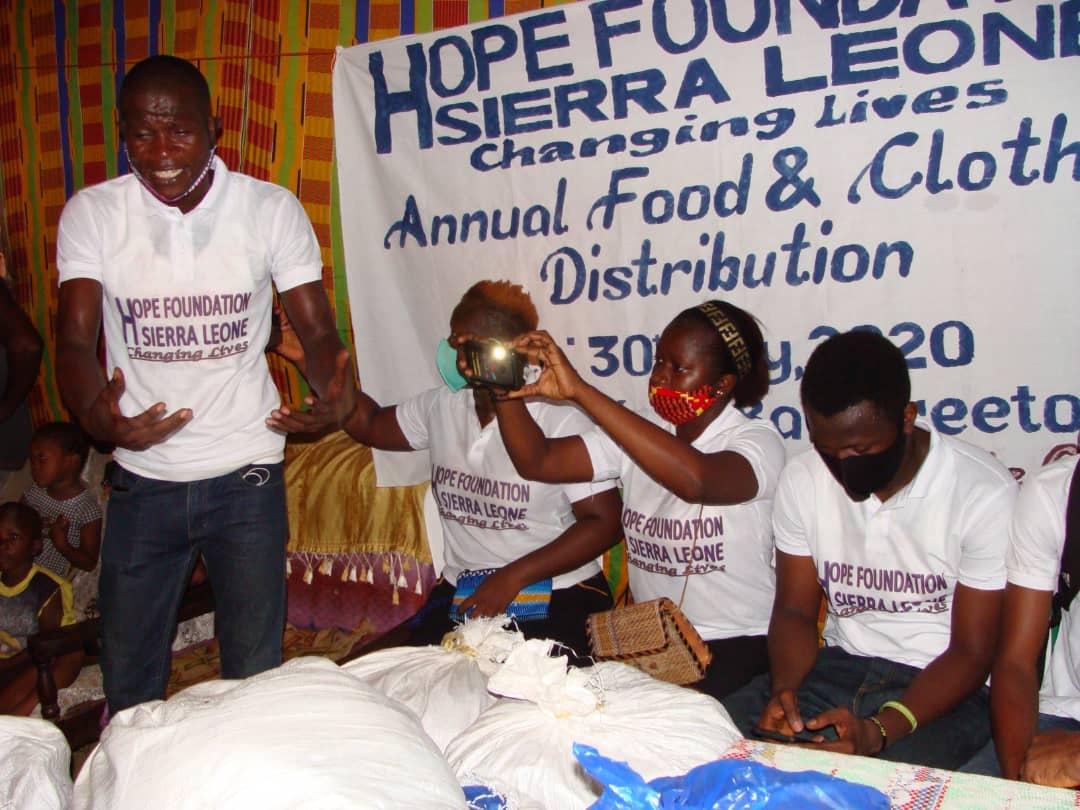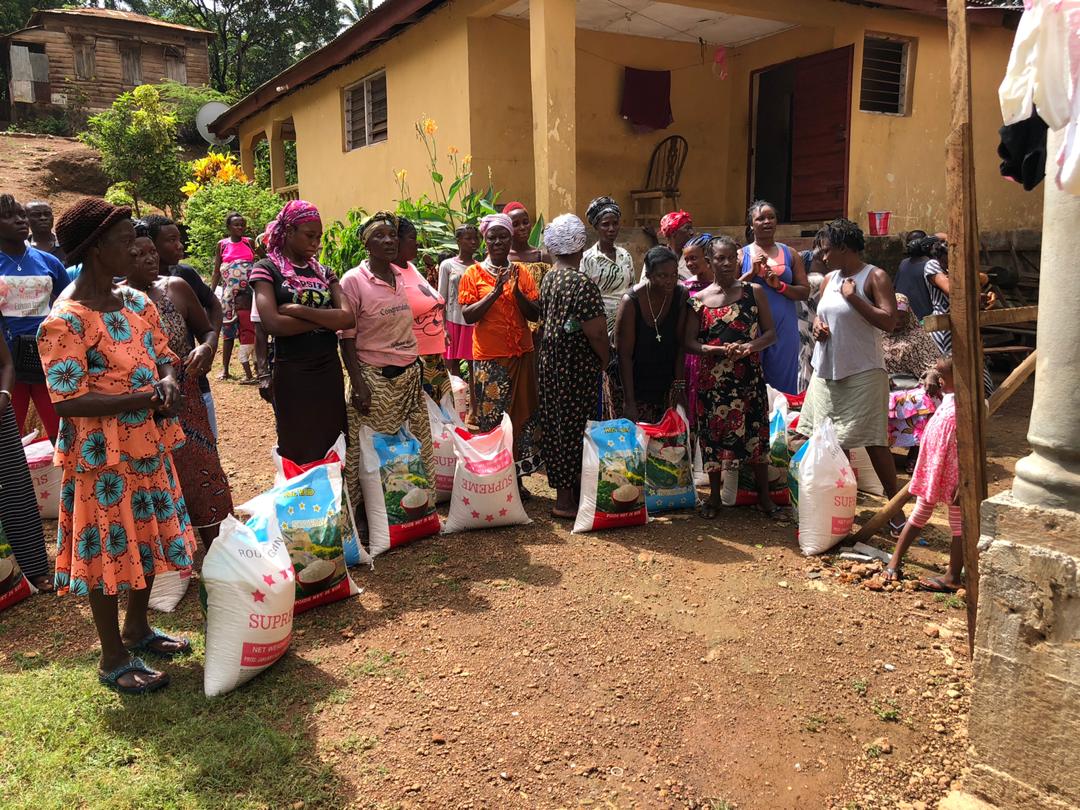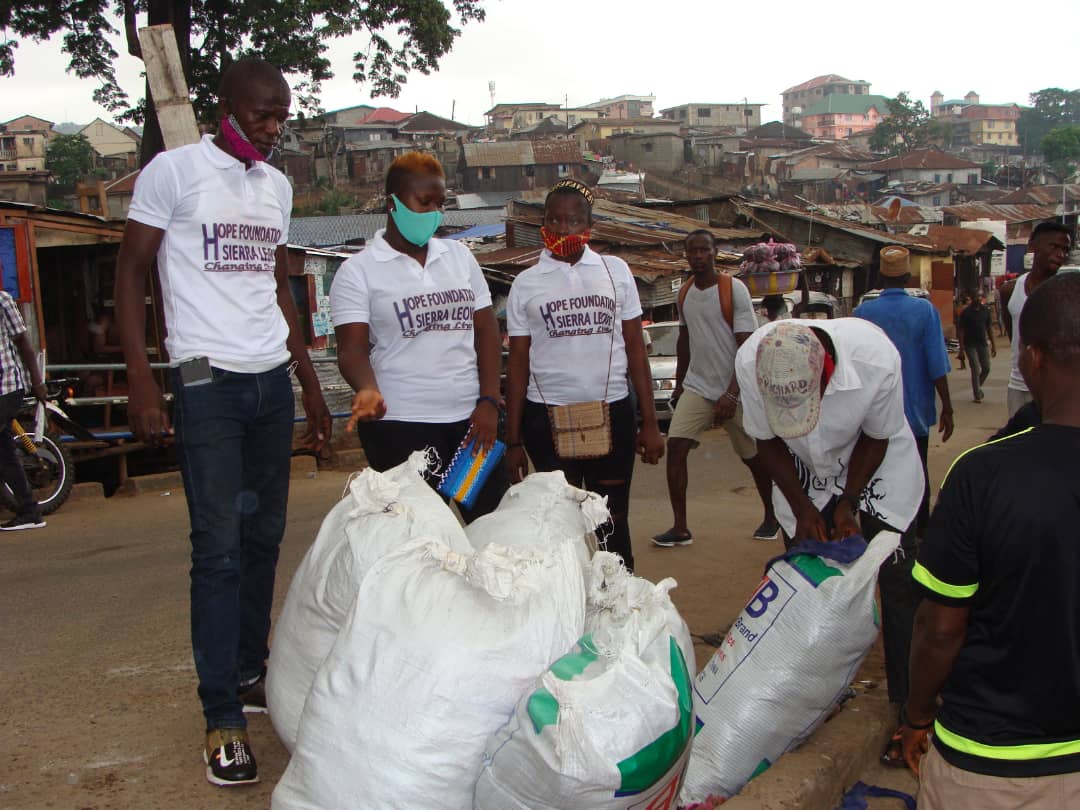Sierra Leone is a country of dynamic beauty, known for its rich natural resources and picturesque vistas of rainforests, mountains, and beaches. But it is also one of the poorest countries in the world — 60% of Sierra Leoneans live below the national poverty line. Conflict, political instability, and natural disasters have put a measurable strain on the country in the past few decades. Increasingly unpredictable rainy seasons have jeopardised food and water supplies and put many people in life-or-death situations.
In terms of health, the country continues to recover from the deadly 2014 Ebola outbreak, while its people — especially women and children — suffer from an alarming gap of trained health workers and a life-threatening lack of medicine and facilities. The majority of the country’s population lives in rural areas, where access to basic health services is especially limited.
About Sierra Leon
Sexual and gender-based violence (SGBV) includes acts or threats of acts which inflict physical, mental, or sexual harm or suffering, or related deprivations of freedom on the basis of gender. SGBV can have severe and long-lasting consequences for survivors, their families and societies.
Sex traffickers and abusers usually target vulnerable people, using lies to prey on those desperate for a better life. Trafficking in Persons (TIP) is not just a crime; it’s a human rights violation.
Ending TIP is an extremely complex challenge, but one we are working around the world to address through aligned partnerships. These programs, designed to prevent, protect, and provide aftercare and advocacy create a path to restoration. Critical to this is working at all levels of society—from raising awareness at the household level to the education of law enforcement and social workers to advocacy at the highest levels of government.
In addition to providing hope, opportunity, and services for survivors of child marriage and trafficking while building the capacity of survivor-facing resources and programs, we work with various organizations to block the systems and people responsible for trafficking in the first place. Achieving inclusive agricultural and economic development and building environmental sustainability is necessary to successfully put a stop to TIP.


UNICEF’s Early Marriage: A Harmful Traditional Practice report characterizes child marriage as a harmful institution that often exposes young women in developing nations to damaging domestic, health, and sexual conditions. The report also highlights the practice as a human rights violation. In World Vision’s “Before She’s Ready: 15 Places Girls Marry by 15,” the organization highlights the socioeconomic consequences of child marriage on girls, noting that many girls are forced to stop their schooling as a result of their marriages. With the denial of education, girl brides are often not able to make income as adults or become politically active citizens.
Sierra Leone’s major child marriage legislation is the 2007 Child Rights Act, which states that the minimum age of betrothal/marriage is eighteen years old. The act also commits the country to the elimination of the forced marriage of girls. It rejects the customary practices of betrothal and marriage for minors, and orders that such practices may not be forced upon minors.
According to Sierra Leonean customary law, a marriage is not considered a valid customary marriage unless both parties are at least 18 years old, with the Customary Marriage and Divorce Act dictating this in 2007. However, in the case that a minor’s parents are able to give consent to the union, a legal marriage is able to take place. If the consent of the parents is not able to be achieved, “a Magistrate or Local Government Chief Administrator of the locality in which the marriage is to take place” is able to provide their consent to verify the marriage. In accordance with customary tradition, child marriages are often the result of unions arranged by the parents of the young bride.
As stated by UNICEF’s The State of the World’s Children 2013 report, 18% of Sierra Leonean women are married by the age of 15, while 44% of them are married by the age of 18. As of 2017, Sierra Leone was ranked by UNICEF as the 19th nation for the highest rates of child marriage.


